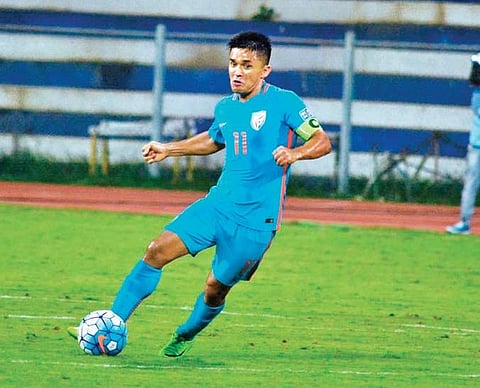

CHENNAI: TSV 1860 Rosenheim is not a name one would usually find in conversations about top-level European football. They play in the fifth tier of German football and their ‘greatest footballing success’, according to Wikipedia, was a brief stint in the fourth tier. Yet in 2015, Rosenheim were paid £13,770 by no less than Manchester United. The reason? A certain Bastian Schweinsteiger, who United had signed, had spent two years at the club at the age of 11 and 12.
In the unequal world of football, where money often means everything, solidarity payments are a great leveller, allowing smaller clubs to profit from the big money moves. European football is littered with examples — SV Rotenburg got 200,000 euros from whatever Arsenal paid Valencia for Shkodran Mustafi. Greifswalder FC (after suing Real Madrid) got 64,000 euros when the latter signed Toni Kroos.
Training compensation or solidarity payments are unheard of in India, but that may not be the case for long. Last week, the All India Football Federation took the first step in what will be a long process of implementing solidarity regulations in India — they brought all stakeholders around a table.
I-League and ISL clubs, as well as academies, were invited to a meeting attended by AIFF development officer Yogesh Desai and Darren Bailey, an expert in training compensation.
“The AFC experts came down a few months ago and visited a number of academies of all sorts — government, private, residential, those of clubs,” said an AIFF official.
“Based on that, they framed their opinion. After listening to what the clubs and academies have to say, they will come back with their final recommendation. The basic structure will be in line with FIFA regulations. It will be as per what AFC will tell us.”
FIFA regulations currently define two types of such payments — a training compensation that will be paid to clubs where a player sent his youth career, when he signs his first professional contract, and a solidarity payment which is a cut of the transfer fee that he commands till he is 23. With transfer fees not yet a thing in Indian football, it will be the former that will be of immediate consequence.
Countless nameless academies, especially in the North-east, continue to churn out professional footballers with nothing to show for it. In last year’s U-16 I-League, only six of the teams who made it to the final 16 were top tier clubs.
In a country like India, where a good chunk of a player’s youth career often goes undocumented, implementing such a system will not be easy.
But that, reasons the AIFF, should not stop it from trying. “That is the challenge,” said the official. “That is why we have brought in the AFC, because we don’t have experience doing this.
“They have experience with this in different countries. If done properly, it can revolutionise Indian football.”
vishnu.prasad@newindianexpress.com